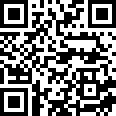Cholinergic toxicity (DUMBBELSS)
Syndrome
- Diarrhea
- Urination
- Miosis
- Bronchospasm
- Bradycardia
- Excitation of skeletal muscle and CNS
- Lacrimation
- Sweating
- Salivation
Direct cholinergic agonists
- Bethanechol (activates bowel and bladder)
- Carbachol (treats glaucoma; contracts pupils; decreases IOP)
- Pilocarpine (activates sweat, tears, saliva)
- Methacholine (asthma provocation)
Indirect cholinergic agonists (acetylcholinesterase inhibitors)
- Neostigmine (postop and neurogenic ileus and urinary retention; treats myasthenia gravis; post-op reversal of NMJ blockage)
- Pyridostigmine (treats myasthenia gravis; does not enter CNS)
- Edrophonium (diagnosis of myasthenia gravis; extremely short acting)
- Physostigmine (treats glaucoma; enters CNS; treats atropine overdose)
- Echothiophate (treats glaucoma)
- Organophosphates found in insecticides. Antidote is atropine to counteract the bradycardia plus pralidoxime, which regenerates AchE by removing the organophosphate.
Antidote
- Pralidoxime (reactivates acetylcholinesterase that had been deactivated by phosphorylation)
Anticholinergic toxicity
Muscarinic cholinergic antagonists (c.f. ACh NMJ antagonists/paralytics)
- Atropine, homatropine, tropicamide (produce mydriasis and cycloplegia)
- Benztropine (enters CNS)
- Scopolamine (enters CNS; treats motion sickness)
- Ipratropium (treats asthma; COPD)
- Oxybutynin, glycopyrrolate (reduces urgency in mild cystitis; reduces bladder spasms)
- Methscopolamine, pirenzepine, propantheline (peptic ulcer treatment)
Other medications causing anticholinergic symptoms
- Tricyclic antidepressants (imipramine ≈ amitriptyline > nortriptyline)
Syndrome
- Hot as a hare
- Dry as a bone
- Red as a beet
- Blind as a bat
- Mad as a hatter
Specifically
- Hyperthermia due to decreased sweating (especially in infants)
- Pupil dilation
- Cycloplegia (loss of focus due to ciliary m paralysis)
- Disorientation (via M1/CNS inhibition)
- Acute angle-closure glaucoma
- Urinary retension in men with prostatic hypertrophy
- Decreased gastric acid secretion
- Decreased bowel motility
- Decreased urinary urgency
Antidote
- Physostigmine (inhibits acetylcholinesterase; penetrates CNS)
